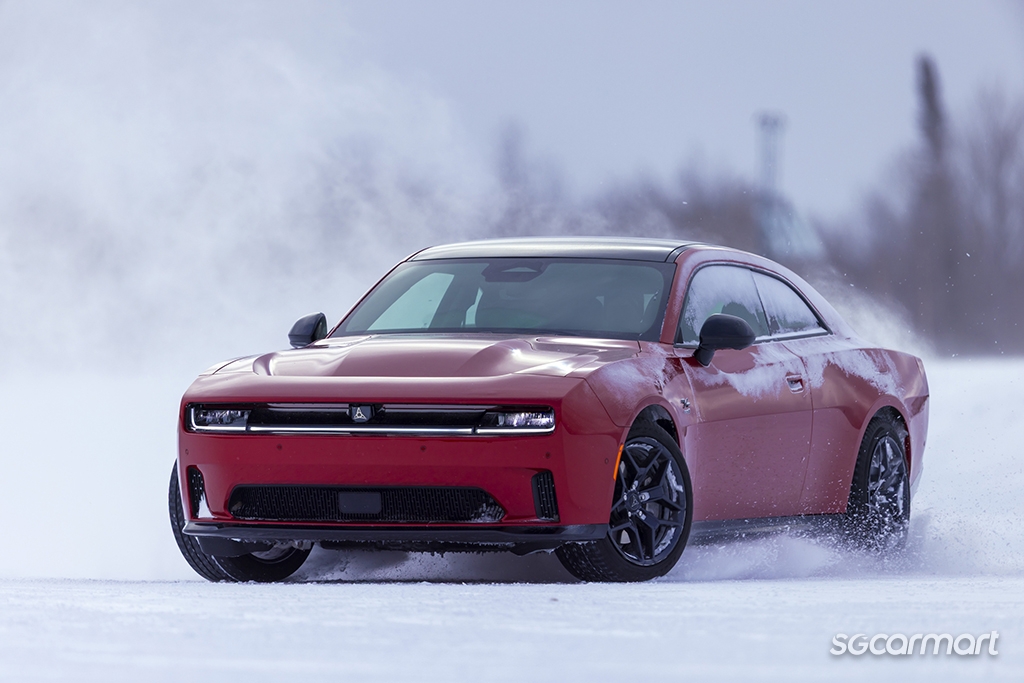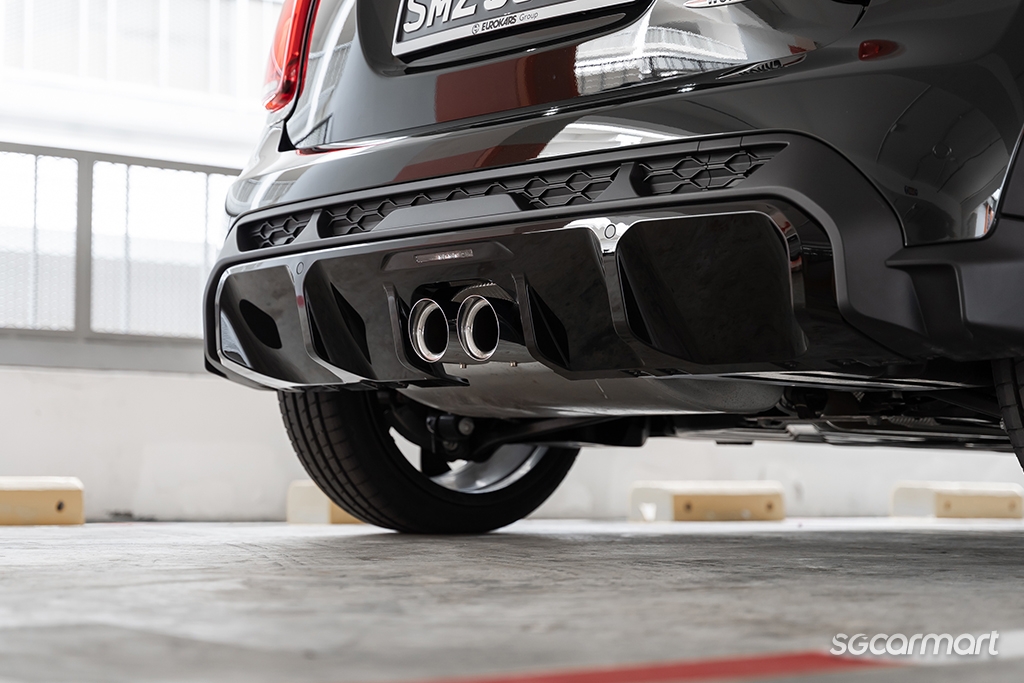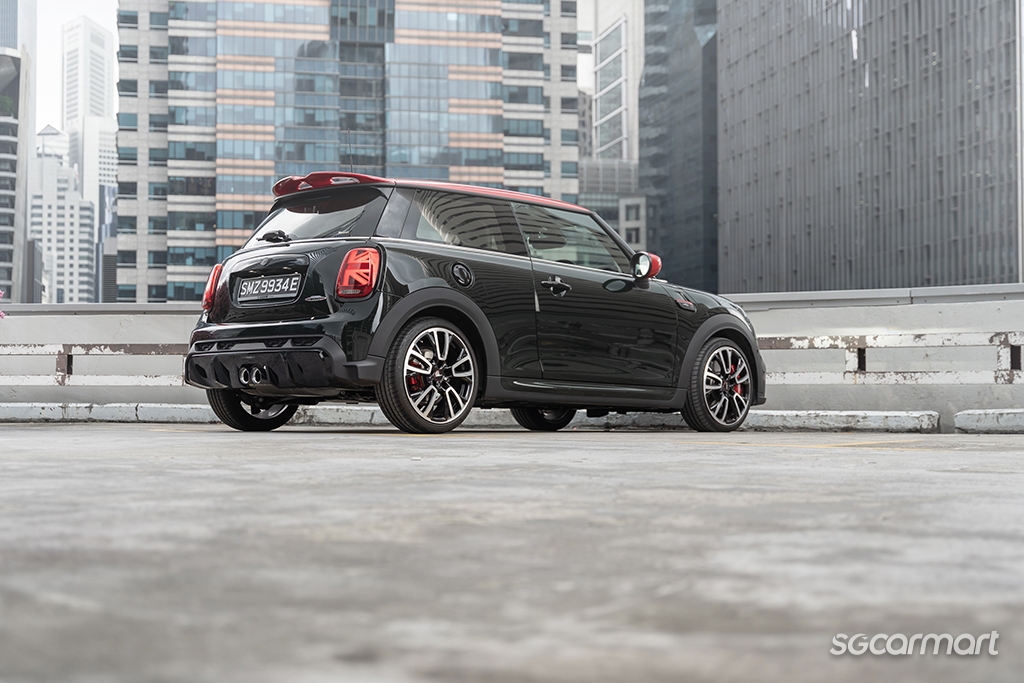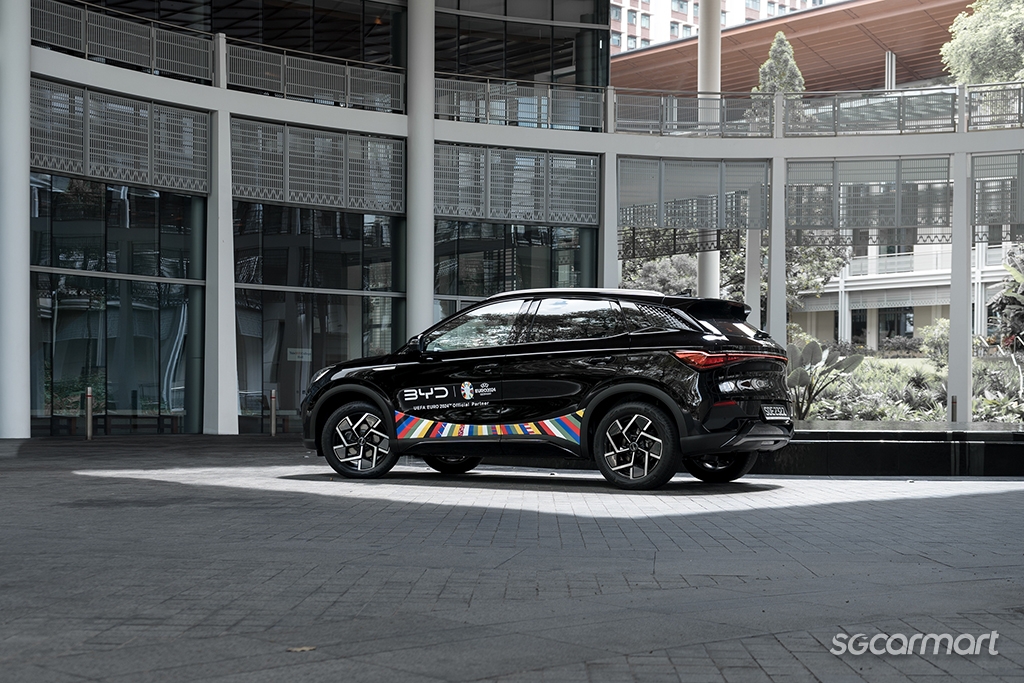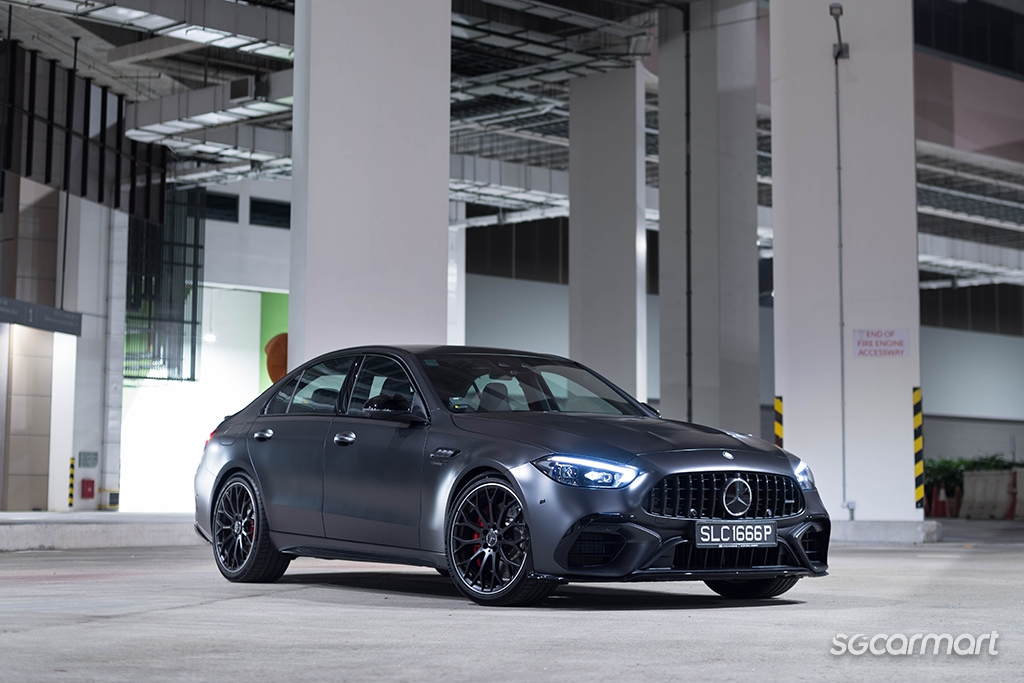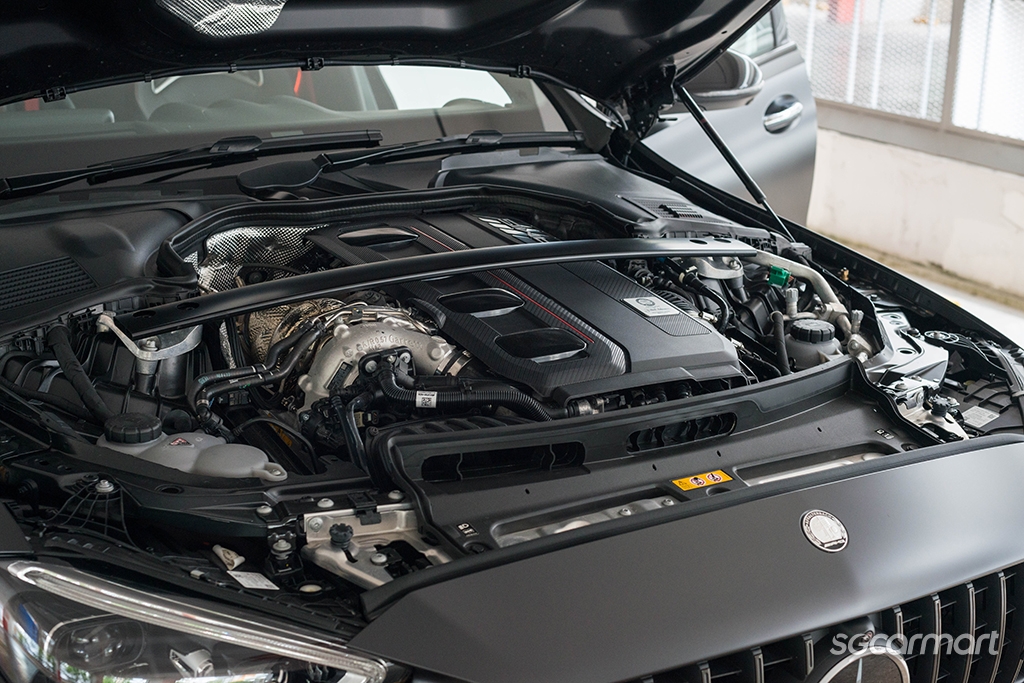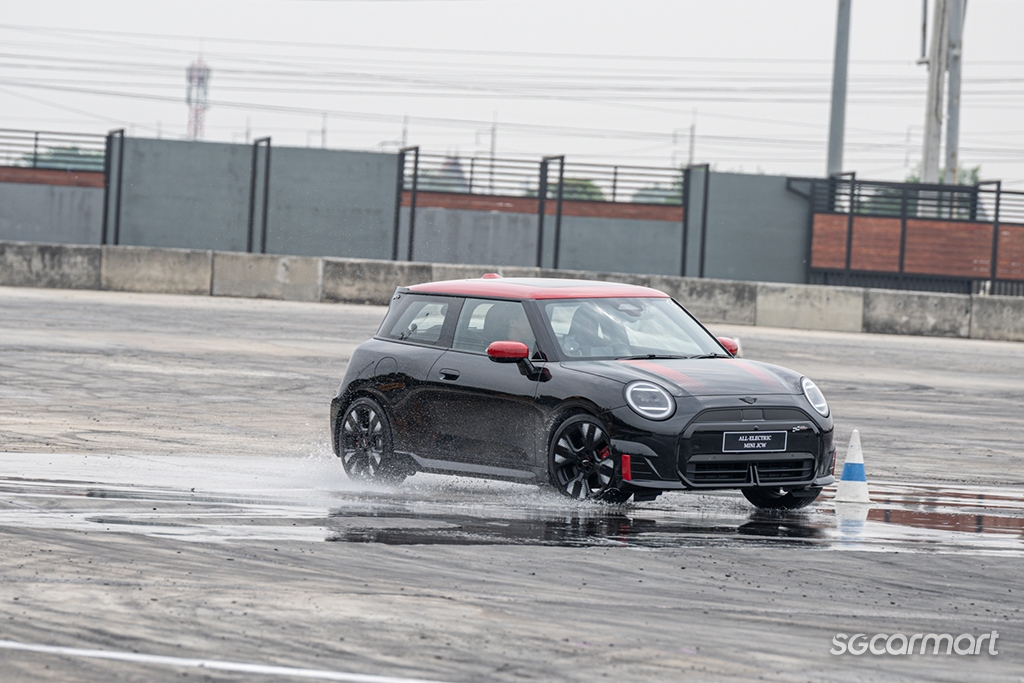Electric JCW? Give me the engine back!
22 Apr 2025|170 views
An electric John Cooper Works, what a blasphemy. That's akin to an electric Dodge Charger or an electric Maserati GranTurismo!
Oh, but these are all cars that exist today. With the worldwide shift towards renewable and clean energy, electric cars have been at the forefront of the industry and all brands are gravitating towards the direction.
MINI isn't the only brand that has gone electric - even brand and models known for their engine and exhaust note, such as the Dodge Charger and the Maserati GranTurismo, are now electric
You would think that sports cars and high-performance variants, which are typically built upon an upgraded engine with louder, more excitable exhaust noises, would be spared from electrification. But it clearly isn't the case. Many performance cars are now electric, and the brands are saying that it makes for increased performance and thrilling driving experiences.
But even after driving the electric JCWs (and other exciting performance EVs) on a race track, I'm still not entirely convinced by the case of performance electric cars. So, I've set out to find out why brands are going down this route.
Incrementally tightening emissions regulations
Care for the environment is the core motivation for electric cars, and the main reason they are backed by authorities all over the world. Engines work by combusting fuel, and byproducts are unavoidable - these make up the tailpipe emissions, which consist of gases and particulates that are harmful to earth and its inhabitants.
The main goal is to save the environment, and emissions regulations are set to work towards it. Car manufacturers must play by the rules set by the regional and government bodies in order to sell their cars in various regions.
Notable regulations include the European Union's Euro emissions standards. Introduced in 1992 with the Euro 1 standard, it has seen multiple revisions to reach the current Euro 6 standard. On each revision, the regulations have been incrementally tightened, with drastic changes expected in the future - the EU targets a 55% carbon dioxide reduction for new cars from 2030 to 2034 as compared to 2021 levels, and a 100% reduction from 2035 onwards (effectively banning the sale of new petrol and diesel powered vehicles).
Car manufacturers have fleet emissions targets to meet, and they are penalised for selling pollutive cars, while incentives are given for selling EVs and other low-emission vehicles. As a result, it makes more business sense for manufacturers to make the shift towards electric vehicles.
Constantly evolving technology and innovation
The push for electric vehicles isn't just about emissions. Being the latest innovation in automotives, no brand would want to be left behind.
Brands such as MINI could continue to stick to high-performance internal combustion engine powered models - they already have the technical knowledge to do so. But they would also risk being stagnant in a climate where new electric models are rapidly being developed and produced. Just look at the existing performance cars in the segment - the well-loved Golf GTI's engine is a variant within the EA888 family that dates back to 2007.
As the world advances toward a fully electrified future, legacy brands need to explore and push the boundaries of EV technology quickly or they might be left behind by the contemporary EV brands.
Changing consumer preferences
The adoption rate of EVs has also been growing significantly in recent years - this is the cumulative result of the availability of EV models, reduction in cost, improvement in battery technology and the support of authorities, which led to an increase in the availability of charging infrastructure.
Last year, EV constituted approximately a 32% of all new car registrations in Singapore, almost double of 2023's 18%. With the shift in consumer preferences toward EVs, it makes sense for manufacturers to gravitate towards them.
Is an electric JCW contradictory?
From the perspective of a car enthusiast who enjoys exhaust noises, the sensory feedback and emotions that a high-performance engine produces, going electric makes no sense. I have driven the electric JCWs and enjoyed their performance, but for such emotive cars to do without an engine simply doesn't cut it for me.
Remember the recent C63? Despite being a great car, it wasn't popular - everyone wanted the muscular and aggressive V8 engine
You'll probably remember how much fuss everyone kicked up when Mercedes-AMG introduced the four-cylinder hybrid C63, and this car didn't do well despite its incredible performance. Now, can you imagine the C63 going electric? The essence of these cars would be lost and the avid fans would be alienated. Hence an electric JCW - a loud car going totally silent - is quite the contradiction.
However, the effect of the ever-tightening emissions regulations, the shift in consumer preferences and the various market forces has made the shift to electric seem inevitable. If the relevant governing bodies get their ways, internal combustion engines are doomed to become extinct in the future.
But it probably isn't a bad thing that manufacturers are making the shift now - the longer runway could lead to more enjoyable performance cars in the future, and allow legacy brands to continue making fun, albeit electric and silent, cars.
Yes, I would much rather the JCW stay rowdy with a high-performance internal combustion engine, but it seems like the only way forward if we still want these cars to be around post-2035 is to accept an electric future. And this is the ultimate reason why so many brands are jumping on the electric bandwagon.
An electric John Cooper Works, what a blasphemy. That's akin to an electric Dodge Charger or an electric Maserati GranTurismo!
Oh, but these are all cars that exist today. With the worldwide shift towards renewable and clean energy, electric cars have been at the forefront of the industry and all brands are gravitating towards the direction.
MINI isn't the only brand that has gone electric - even brand and models known for their engine and exhaust note, such as the Dodge Charger and the Maserati GranTurismo, are now electric
You would think that sports cars and high-performance variants, which are typically built upon an upgraded engine with louder, more excitable exhaust noises, would be spared from electrification. But it clearly isn't the case. Many performance cars are now electric, and the brands are saying that it makes for increased performance and thrilling driving experiences.
But even after driving the electric JCWs (and other exciting performance EVs) on a race track, I'm still not entirely convinced by the case of performance electric cars. So, I've set out to find out why brands are going down this route.
Incrementally tightening emissions regulations
Care for the environment is the core motivation for electric cars, and the main reason they are backed by authorities all over the world. Engines work by combusting fuel, and byproducts are unavoidable - these make up the tailpipe emissions, which consist of gases and particulates that are harmful to earth and its inhabitants.
The main goal is to save the environment, and emissions regulations are set to work towards it. Car manufacturers must play by the rules set by the regional and government bodies in order to sell their cars in various regions.
Notable regulations include the European Union's Euro emissions standards. Introduced in 1992 with the Euro 1 standard, it has seen multiple revisions to reach the current Euro 6 standard. On each revision, the regulations have been incrementally tightened, with drastic changes expected in the future - the EU targets a 55% carbon dioxide reduction for new cars from 2030 to 2034 as compared to 2021 levels, and a 100% reduction from 2035 onwards (effectively banning the sale of new petrol and diesel powered vehicles).
Car manufacturers have fleet emissions targets to meet, and they are penalised for selling pollutive cars, while incentives are given for selling EVs and other low-emission vehicles. As a result, it makes more business sense for manufacturers to make the shift towards electric vehicles.
Constantly evolving technology and innovation
The push for electric vehicles isn't just about emissions. Being the latest innovation in automotives, no brand would want to be left behind.
Brands such as MINI could continue to stick to high-performance internal combustion engine powered models - they already have the technical knowledge to do so. But they would also risk being stagnant in a climate where new electric models are rapidly being developed and produced. Just look at the existing performance cars in the segment - the well-loved Golf GTI's engine is a variant within the EA888 family that dates back to 2007.
As the world advances toward a fully electrified future, legacy brands need to explore and push the boundaries of EV technology quickly or they might be left behind by the contemporary EV brands.
Changing consumer preferences
The adoption rate of EVs has also been growing significantly in recent years - this is the cumulative result of the availability of EV models, reduction in cost, improvement in battery technology and the support of authorities, which led to an increase in the availability of charging infrastructure.
Last year, EV constituted approximately a 32% of all new car registrations in Singapore, almost double of 2023's 18%. With the shift in consumer preferences toward EVs, it makes sense for manufacturers to gravitate towards them.
Is an electric JCW contradictory?
From the perspective of a car enthusiast who enjoys exhaust noises, the sensory feedback and emotions that a high-performance engine produces, going electric makes no sense. I have driven the electric JCWs and enjoyed their performance, but for such emotive cars to do without an engine simply doesn't cut it for me.
Remember the recent C63? Despite being a great car, it wasn't popular - everyone wanted the muscular and aggressive V8 engine
You'll probably remember how much fuss everyone kicked up when Mercedes-AMG introduced the four-cylinder hybrid C63, and this car didn't do well despite its incredible performance. Now, can you imagine the C63 going electric? The essence of these cars would be lost and the avid fans would be alienated. Hence an electric JCW - a loud car going totally silent - is quite the contradiction.
However, the effect of the ever-tightening emissions regulations, the shift in consumer preferences and the various market forces has made the shift to electric seem inevitable. If the relevant governing bodies get their ways, internal combustion engines are doomed to become extinct in the future.
But it probably isn't a bad thing that manufacturers are making the shift now - the longer runway could lead to more enjoyable performance cars in the future, and allow legacy brands to continue making fun, albeit electric and silent, cars.
Yes, I would much rather the JCW stay rowdy with a high-performance internal combustion engine, but it seems like the only way forward if we still want these cars to be around post-2035 is to accept an electric future. And this is the ultimate reason why so many brands are jumping on the electric bandwagon.
Thank You For Your Subscription.











